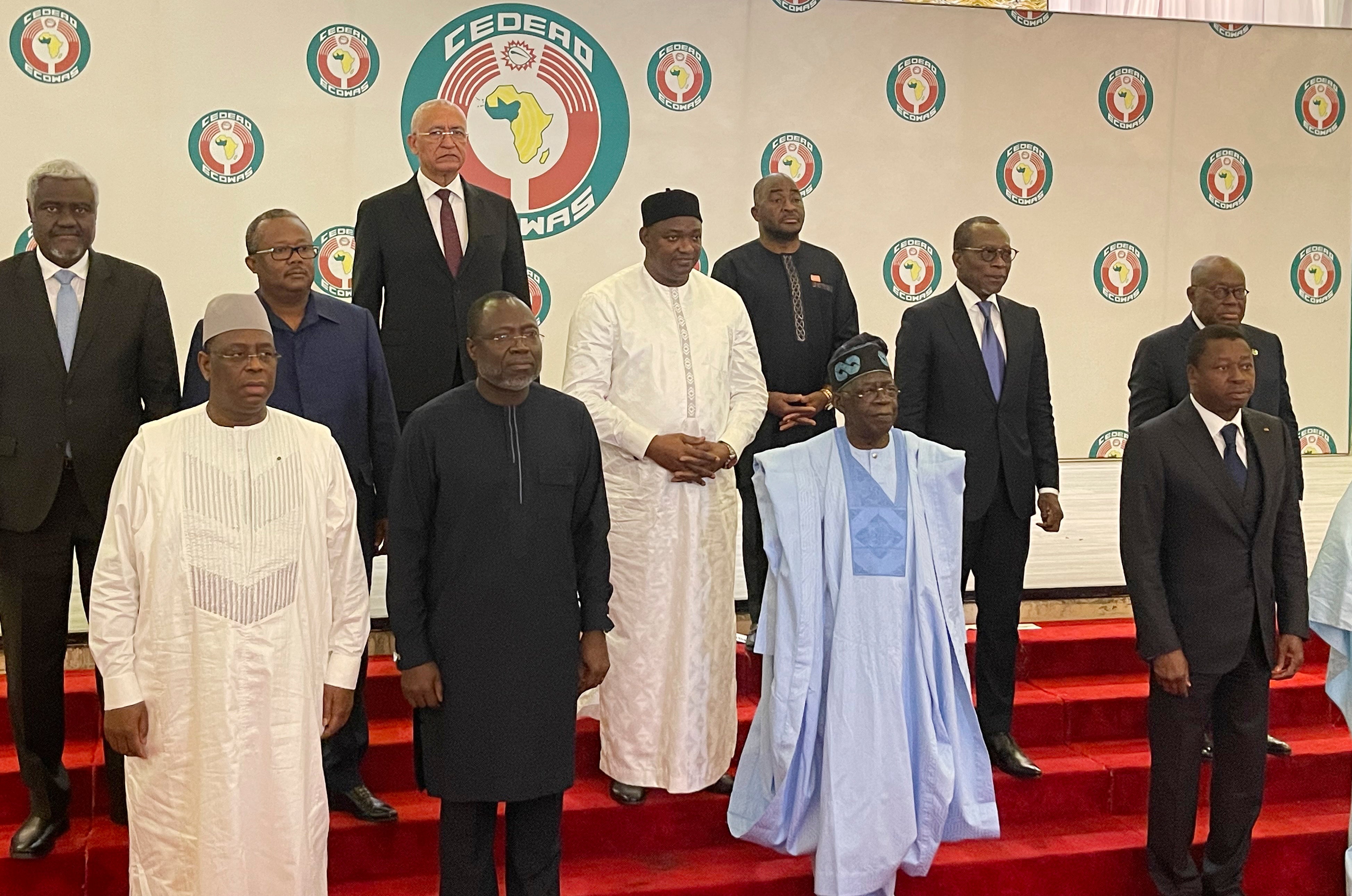West African nations threaten to use force if Niger's president isn't reinstated within a week
West African nations have given Niger’s coup leaders one week to reinstate the country’s democratically elected president and have threatened to use if the demands aren't met

Your support helps us to tell the story
From reproductive rights to climate change to Big Tech, The Independent is on the ground when the story is developing. Whether it's investigating the financials of Elon Musk's pro-Trump PAC or producing our latest documentary, 'The A Word', which shines a light on the American women fighting for reproductive rights, we know how important it is to parse out the facts from the messaging.
At such a critical moment in US history, we need reporters on the ground. Your donation allows us to keep sending journalists to speak to both sides of the story.
The Independent is trusted by Americans across the entire political spectrum. And unlike many other quality news outlets, we choose not to lock Americans out of our reporting and analysis with paywalls. We believe quality journalism should be available to everyone, paid for by those who can afford it.
Your support makes all the difference.West African nations have given Niger's coup leaders one week to reinstate the country's democratically elected president and have threatened to use force if the demands aren't met.
The announcement came at the end of an emergency meeting of West African countries Sunday in Nigeria, where the regional bloc, known as ECOWAS, convened to respond to last week's military takeover. President Mohamed Bazoum remains under house arrest and has yet to resign.
“In the event the authority’s demands are not met within one week, (the bloc will) take all measures necessary to restore constitutional order in the Republic of Niger. Such measures may include the use of force,” said the statement.
The bloc also imposted strict sanctions, including suspending all commercial and financial transactions between ECOWAS member states and Niger and freezing of assets in regional central banks.
Economic sanctions could have a deep impact on Nigeriens, who live in the third-poorest country in the world, according to the latest U.N. data. The country relies on imports from Nigeria for up to 90% of its power, according to the International Renewable Energy Agency.
The sanctions could be disastrous and Niger needs to find a solution to avoid them, Prime Minister Ouhoumoudou Mahamadou told French media outlet Radio France Internationale on Sunday.
“When people say there’s an embargo, land borders are closed, air borders are closed, it’s extremely difficult for people ... Niger is a country that relies heavily on the international community,” he said.
The 15-nation ECOWAS bloc has unsuccessfully tried to restore democracies in nations where the military took power in recent years. Four nations are run by military governments in West and Central Africa, where there have been nine successful or attempted coups since 2020.
In the 1990s, ECOWAS intervened in Liberia during its civil war. In 2017, it intervened in Gambia to prevent the new president’s predecessor, Yahya Jammeh, from disrupting the handover of power. Around 7,000 troops from Ghana, Nigeria, and Senegal entered, according to the Global Observatory, which provides analysis on peace and security issues.
If the regional bloc uses force, it could trigger violence not only between Niger and ECOWAS forces but also civilians supporting the coup and those against it, Niger analysts say.
“While this remains to be a threat and unlikely action, the consequences on civilians of such an approach if putschists chose confrontation would be catastrophic," said Rida Lyammouri, senior fellow at the Policy Center for the New South, a Morocco-based think tank.
“I believe economic sanctions are the ones to be imposed, but don’t see a military intervention happening because of the violence that could trigger," he said.
The military junta, which seized power on Wednesday when members of the presidential guard surrounded Bazoum's house and detained him, is already cracking down on the government and civil liberties.
On Sunday, junta spokesman Col. Maj. Amadou Abdramane said on state television that all government cars need to be returned by midday Monday and banned the use of social media to diffuse messages against state security. He also claimed that Bazoum’s government had authorized the French to carry out strikes to free Bazoum. The Associated Press can't verify his allegations.
In anticipation of the ECOWAS decision Sunday, thousands of pro-junta supporters took to the streets in the capital, Niamey, denouncing its former colonial ruler, France, waving Russian flags and telling the international community to stay away.
Demonstrators in Niger are openly resentful of France, and Russia is seen by some as a powerful alternative. The nature of Moscow's involvement in the rallies, if any, isn’t clear, but some protesters have carried Russian flags, along with signs reading “Down with France” and supporting Russian President Vladimir Putin.
“The situation of this country is not good ... It’s time for change, and change has arrived," said Moussa Seydou, a protester. "What we want from the putschists — all they have to do is improve social conditions so that Nigeriens can live better in this country and bring peace,” he said.